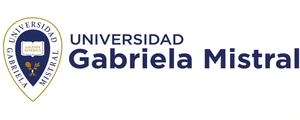Gabriela Mistral University Repository
The Gabriela Mistral University Library has developed the following Academic Repository in order to preserve, disseminate and make available the full-text contents of the academic production developed by the different actors in the academic and research field of the University.
The UGM University at the beginning of the year 2017 incorporated the UCINF University, also adding that collection where we find memories, theses, degree works, academic magazines, speeches, books, digital and sound files. Contact: [email protected]
The UGM University at the beginning of the year 2017 incorporated the UCINF University, also adding that collection where we find memories, theses, degree works, academic magazines, speeches, books, digital and sound files. Contact: [email protected]
La escuela escotista en el Chile colonial Alonso de Briceño y Juan de Fuica
| dc.contributor.author | Guerrero Troncoso, Hernán | |
| dc.date.accessioned | 2018-03-27T22:12:47Z | |
| dc.date.available | 2018-03-27T22:12:47Z | |
| dc.date.issued | 2014 | |
| dc.identifier.citation | Revista Chilena de Estudios Medievales Número 6, enero-diciembre 2014, pp: 29 - 42 | es_ES |
| dc.identifier.issn | 07192215 | |
| dc.identifier.uri | https://hdl.handle.net/20.500.12743/857 | |
| dc.description.abstract | Con el fin de determinar qué se puede entender por filosofía chilena, presentamos dos figuras que nos permiten apreciar en qué consistía hacer filosofía en nuestro país durante la colonia, los franciscanos Alonso Briceño y Juan de Fuica. El primero, obispo de Nicaragua y Caracas, fue el autor de una monumental obra filosófica y teológica, las Celeberrimae disputationes, una de los primeros textos de filosofía producidos en América. El segundo, maestro de los frailes que estudiaban en el Convento de Santa María del Socorro en Santiago durante la segunda mitad del siglo XVII, nos dejó un curso completo de filosofía, conservado inédito en un manuscrito del Archivo Franciscano de Santiago. Ambos autores se consideran miembros de una tradición filosófica, en la medida en que reconocen que su fuente de inspiración es la doctrina de Juan Duns Scoto. Ahora bien, si su pensamiento puede ser considerado propiamente chileno o no, queda abierto para la discusión. | es_ES |
| dc.description.abstract | In order to determine what could be considered as Chilean Philosophy, we present two figures who allow us to appreciate what it meant to make Philosophy in our country during the Colony, the Franciscans Alonso Briceño and Juan de Fuica. The former, bishop of Nicaragua and Caracas, wrote a monumental philosophical and theological work, the Celeberrimae disputationes, one of the first philosophical texts produced in America. The latter, master of the friars that studied in the Convent of Our Lady of Succor, in Santiago, during the second half of the 17th century, left us a complete course of Philosophy, which remains unedited in a manuscript of the Franciscan Archive in Santiago. Both authors deemed themselves as members of a philosophical tradition, since they both acknowledge their source of inspiration to be the doctrine of John Duns Scotus. Whether their thought can be considered as properly Chilean or not, is left open for discussion. | |
| dc.language.iso | es | es_ES |
| dc.publisher | Universidad Gabriela Mistral | es_ES |
| dc.publisher | Centro de Estudios Medievales | |
| dc.rights | Attribution-NoDerivs 3.0 United States | |
| dc.rights.uri | http://creativecommons.org/licenses/by-nd/3.0/us/ | |
| dc.subject | Historia de la Filosofía | es_ES |
| dc.subject | Filosofía latinoamericana | es_ES |
| dc.subject | Escotismo | es_ES |
| dc.subject | Chile Colonial | |
| dc.title | La escuela escotista en el Chile colonial Alonso de Briceño y Juan de Fuica | es_ES |
| dc.type | Article | es_ES |



